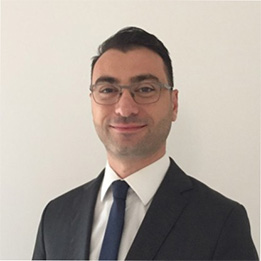

General counsel - EMEA | Kyndryl





Tarek Nakkach
General counsel - EMEA | Kyndryl
Lawyer 2.0: The future of the industry
A few years ago, I was invited to be part of a panel discussion, entitled ‘Robot Lawyers: how and how soon?’ A topic which caused the opinions in the room to split, with the panelists, including myself, and fellow legal counsel considering the idea of robot lawyers farfetched, while robotics engineers agreed that it was the future.
The idea -at least for lawyers- was inconceivable; only humans can study, practice, and advise on law. However, fifty years ago, people never had imagined that one day we would be able to order our groceries with the touch of a button using a pocket-sized wireless device.
Today, technologies, such as AI, can provide physicians with pattern recognition data on their patients, which helps in prevention and diagnosing. Another example is banks where AI is used to bring advanced data analytics to combat fraudulent transactions. So, if the critical sectors can benefit from technology, why can’t we and how can we put it into practice? Technology is evolving and so is the legal industry.
Adopt Solutions that would benefit your organisation and clients
There are many tools out there but do not adopt technology for the sake of adopting it. Identify solutions that are best for internal use and will address customer demand.
For in-house counsel, companies are able to measure the value the function brings to business through data. This happens when legal departments adopt AI for documents review or contracts analytics tools which are designed to help track contract renewals and monitor compliance with regulations.
As for law firms, litigation prediction or e-discovery tools are examples of some of the most sought-after solutions that can help companies gain an edge over competition.
If you are not sure what to adopt, I suggest document repository and electronic billing tools as a good start.
Keep up with skillset for the future
There are AI solutions today that negotiate NDAs with minimal human intervention. These tools save time spent on menial tasks and free up experts to focus on oversight, and more substantive and complex issues.
There are also tools that highlight non-standard clauses and provide alternative wording. Does this mean that the AI will be the driving force of future of the industry?
Not entirely, because no tool can manage projects, embrace leadership qualities and be empathic towards colleagues. Good lawyers can and that’s the future of the industry.
However, in order to continue to be leaders in their field, lawyers not only need to keep abreast of new and relevant technologies but equip themselves with the most in-demand skills. While technology can augment day-to-day work by automating time consuming tasks and providing data for better decision making, it will always be lawyers’ responsibility to exercise good judgment and provide practical advice and solutions, whether working at a law firm or in-house.
General counsel - EMEA | Kyndyl
Tarek Nakkach is an award-winning General Counsel, chosen as one of the most influential General Counsel in the Middle East by the Legal 500 GC Powerlist for promoting AI, technology,...
Director and General counsel - MEA | Kyndryl
Director & General Counsel, MEA | Kyndryl
Region legal counsel - Middle East | Hewlett Packard Enterprise (HPE)
During the course of his time with Hewlett Packard Enterprise (HPE), Tarek Nakkach has guided his legal team to an extremely high level of service; it has received multiple internal...